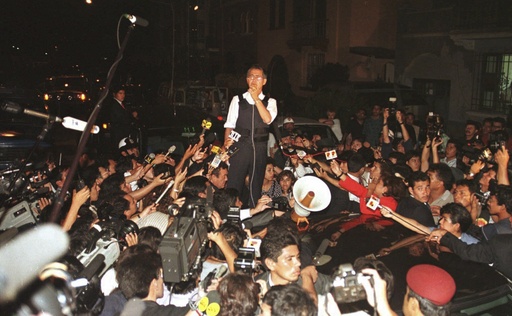Alberto Fujimori, the former president of Peru known for his controversial and turbulent tenure, has passed away at the age of 86 in Lima, Peru. His daughter, Keiko Fujimori, announced his death. Fujimori’s presidency began in 1990 with economic victories and quelling a brutal insurgency, only to end in autocratic actions that led to his imprisonment. Despite being pardoned in December for corruption and links to the murders of 25 people, Fujimori had expressed intentions to run for president in 2026.
Fujimori, a former university president and mathematics professor, rose to power as a political outsider, winning the election in 1990. He managed to stabilize Peru’s economy by implementing bold measures, including privatizing state industries, and defeating the Shining Path rebels. However, his leadership became increasingly authoritarian, leading to his downfall when leaked tapes exposed corruption scandals involving his administration.
Following his escape to Japan and subsequent extradition to Peru, Fujimori became the first former president in the world to be convicted in his own country for human rights violations. Despite his imprisonment, he continued to seek political redemption and even contemplated running for office from his prison cell on the outskirts of Lima. His daughter, Keiko Fujimori, also pursued a political career, aiming to restore the family dynasty but faced defeat in multiple presidential elections.
Fujimori’s legacy is characterized by his brash authoritarianism, earning him the nickname “caudillismo.” He leaves behind four children, including Keiko, who previously ran for president, and Kenji, a congressman. Fujimori, born to immigrant parents on Peruvian Independence Day, initially entered politics as a clean alternative to the country’s corrupt establishment. Despite his initial popularity, his presidency descended into accusations of abuse of power, corruption, and human rights violations.
Throughout his tumultuous political career, Fujimori’s leadership style evolved from popular acclaim for his economic reforms to condemnation for his anti-democratic actions. Despite his controversial legacy, he remained an influential figure in Peruvian politics, with supporters and critics sharply divided over his contributions to the country’s history. Fujimori’s death marks the end of a complex chapter in Peru’s political narrative, leaving a polarizing and contested legacy among the Peruvian people.
